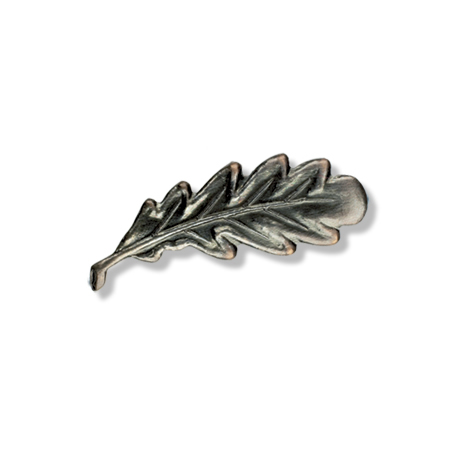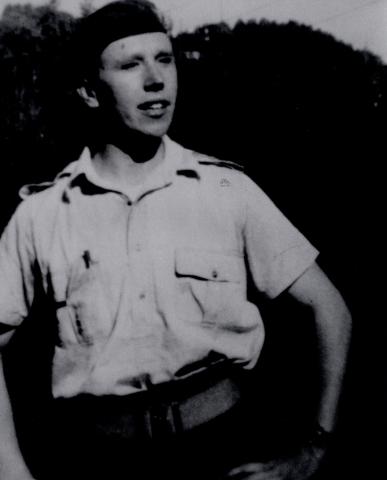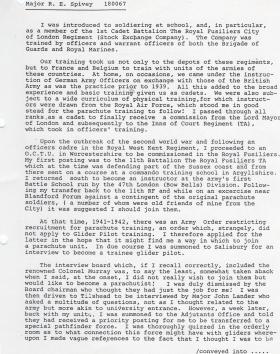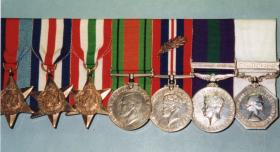Robert Spivey enlisted into the Royal Fusiliers, TA, in October 1939, before transferring to the Royal West Kents. From there he was commissioned as a 2nd Lt in the Fusiliers before volunteering for Airborne Forces and being posted to the 21st Independent Parachute Company.
He completed a Parachute Course at RAF Ringway in September 1942.
Robert saw service with the 21st in Sicily, Italy and Arnhem (where he received a MiD) and later Norway.
Post war he served in Palestine, before undertaking an Antarctic expedition led by Vivian Fuchs. Robert spent the next 2 years at Marguerite Bay far down the west coast of the Antarctic peninsular as part of the Falklands Islands Dependencies Survey (Now the British Antarctic Survey). Whilst there he suffered frost bite to his feet, but his companions remembered him as "a man without fear". Further adventures on the 500 mile journey, included the discovery of a Penguin colony and a fall through the ice, from which Robert extracted himself.
A post at Thule Airbase in the 1950s, was followed by undertaking the role of magistarte and administrator at Grytviken, South Georgia and later working with the Colonial and Foreign and Commonwealth Office.
He later settled in Australia.
His medals are displayed at the Airborne Assault Museum, Duxford.
Major RE Spivey submitted the following account to the regimental archives, Aldershot in the late 1980s:
In 1942 I was the first commissioned officer to be recruited by Maj John Lander (Royal Signals) who formed, as Officer Commanding, the 21st Independent Parachute Company, - a pathfinder and special duty unit attached to HQ 1st Airborne Division.
I was involved in the first experiments of parachuting with equipment attached to the legs, including the kit-bag and various navigational aids all the first use of their kind and invented by Major Lander.
In July 1943 the company was assigned to mark DZs for the assault on Primosole Bridge as part of the invasion of Sicily. Assisted by one other company member, my task was to set up navigational aids to guide in the main force of parachute and glider-borne troops. We flew in one of the leading aircraft, in heavy flak, failed to find the DZ and returned to base in North Africa. Maj Lander flew in one of the aircraft taking part in the assault, not to drop, but to enable him to assess from the air, the value of his navigational aid inventions. The aircraft carrying him was shot down and he was killed.
At this juncture Capt Boy Wilson (10th Hussars), then second in command, became Major OC Company and I, then Lt I/C 2 Platoon, was promoted Captain 2I/C.
In September 1943, the company took part in the invasion of Southern Italy being transported from Algiers to Taranto by the 1st Cruiser Squadron. The Company was withdrawn from the line when just north of Foggia. Later in 1943 the Company returned to the UK by sea.
In September 1944 the Company led the assault on Arnhem and marked and defended all the DZs and LZs. Throughout the action, the Company remained a unified fighting force and withdrew as such across the Rhine.
In May 1945 I commanded half the Company to "encourage" the surrender of German Forces in Stavanger, Norway. The other half, commanded by Maj Wilson went to Oslo to do likewise. The Company, fully prepared to make a parachute assault should German troops resist, landed in aircraft and secured the principal airfields of both cities.
Later in 1945, when the Company sailed for the far east to take part in the invasion of Japan, I became OC with Capt Charles Davis-Goff (Ox and Bucks) as 2 I/C. In the course of the voyage Japan surrendered and the Company was put ashore in Alexandria for service attached HQ 6th Airborne Division in Palestine. It was here, in 1947, that the Company was disbanded on a most contentious order from The War office.
After a short attachment to the 8th Parachute Battalion, as a Company Commander I discharged myself from the Army.
I received a Polar Medal 1948-1949 when I was no longer serving with the Regiment as I was awarded it for services with an expedition as part of the Falkland Islands Dependencies Survey 1948-1950. The base was within the Antarctic circle and the expedition was marooned for two years.
From the Airborne Assault Archives and Daily telegraph Obit, 25 June 1994.
Read More







Latest Comments
There are currently no comments for this content.
Add Comment
In order to add comments you must be registered with ParaData.
If you are currently a ParaData member please login.
If you are not currently a ParaData member but wish to get involved please register.